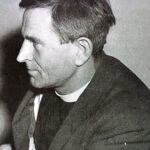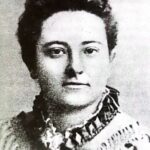Robert Hutchison (June 23, 1828- June 13, 1863) was a wealthy merchant, the first mayor of Cape Coast, and an African unofficial member of the Gold Coast Legislative Council from 1861- 1863.
He was born in Cape Coast in1828, the son of an English diplomat, William Hutchison, and a Cape Coast woman, Adelina Williams. He was educated in England, and started life as an agent of the English firm of F & A Swanzy, in Cape Coast.
This was the epoch of the African merchant princes, and Hutchison was reputed to be the wealthiest of the African merchants. In a letter to the Secretary of State for the Colonies, Lord Molesworth, sent through Governor Henry Connor, and dated September 10, 1855, Hutchison claimed that he was worth 60,000 pounds.
In spite of the depression of the 1850s and 1860s, Hutchison’s business prospered. When the oil palm industry fell on evil days, and suppliers in Krobo, 50 mi (80 km) northeast of Accra, decided not to sell because they had been heavily fined as a result of a rebellion, Hutchison’s firm undertook to pay the fine and to collect the debt in palm oil from the Krobo people. Hutchison, as the firm’s African agent, benefited accordingly.
He was also a brave soldier, establishing the Gold Coast Volunteer Corps in 1863, with the support of George Kuntu Blankson, John Sarbah, Samuel Collins Brew, and the others. With this force they were able to help to defend the coastal region during the Asante invasion of 1863.
After the establishment of the Accra Municipal Council by Governor Sir Benjamin Chilly Campbell Pine, under the provisions of the Municipal Corporations Ordinance of 1858, Hutchison urged the acting governor, Major Henry Bird, to establish a municipal council in Cape Coast in 1859.
Hutchison was elected first mayor of Cape Coast, serving from 1859-1860. He introduced a house rate tax, varying from one shilling to three pounds, which led to discontent, since the Cape Coast people came to regard it as some sort of poll tax.
His corporation also established a court which could impose fines of up to 50 pounds in civil cases, and up to six months’ imprisonment in criminal cases. The mayor’s court caused discontent in Cape Coast, however, because the king of Cape Coast considered it to be a usurpation of his authority.
Major Bird, however, felt that the king’s opposition was due to the fact that Hutchison’s court gave fair judgements and imposed reasonable fines, while the king’s court engaged in bribery and imposed heavy fines to fill his treasury.
The troubles arising from the Municipal Corporations Ordinance led to its repeal in 1863, after Hutchison’s death. But Governor Bird nevertheless commended the ape Coast Town Council for its performance, and granted the mayor and his councillors permission to wear the insignia of office-partly in order to stimulate competition at the next elections.
Hutchison then became the third African unofficial member to be appointed to the Legislative Council, serving from 1861 to his death in 1863. He took an active part in the council’s proceedings, and helped to safeguard African interests.
In civic affairs he encouraged the wearing of European clothes and the imitation of European ways of life. He and Charles Bartels were among those who introduced Freemasonry to the Gold Coast- establishing the Gold Coast Lodge No. 773. He was also a philanthropist who helped to build the Anglican Church Chapel at Cape Coast.
He died from a heart attack of dysentery on June 13, 1863, while in camp at Manso (Mansu), about 30 mi (48 km) north of Cape Coast.
L. H. OFOSU-APPIAH


